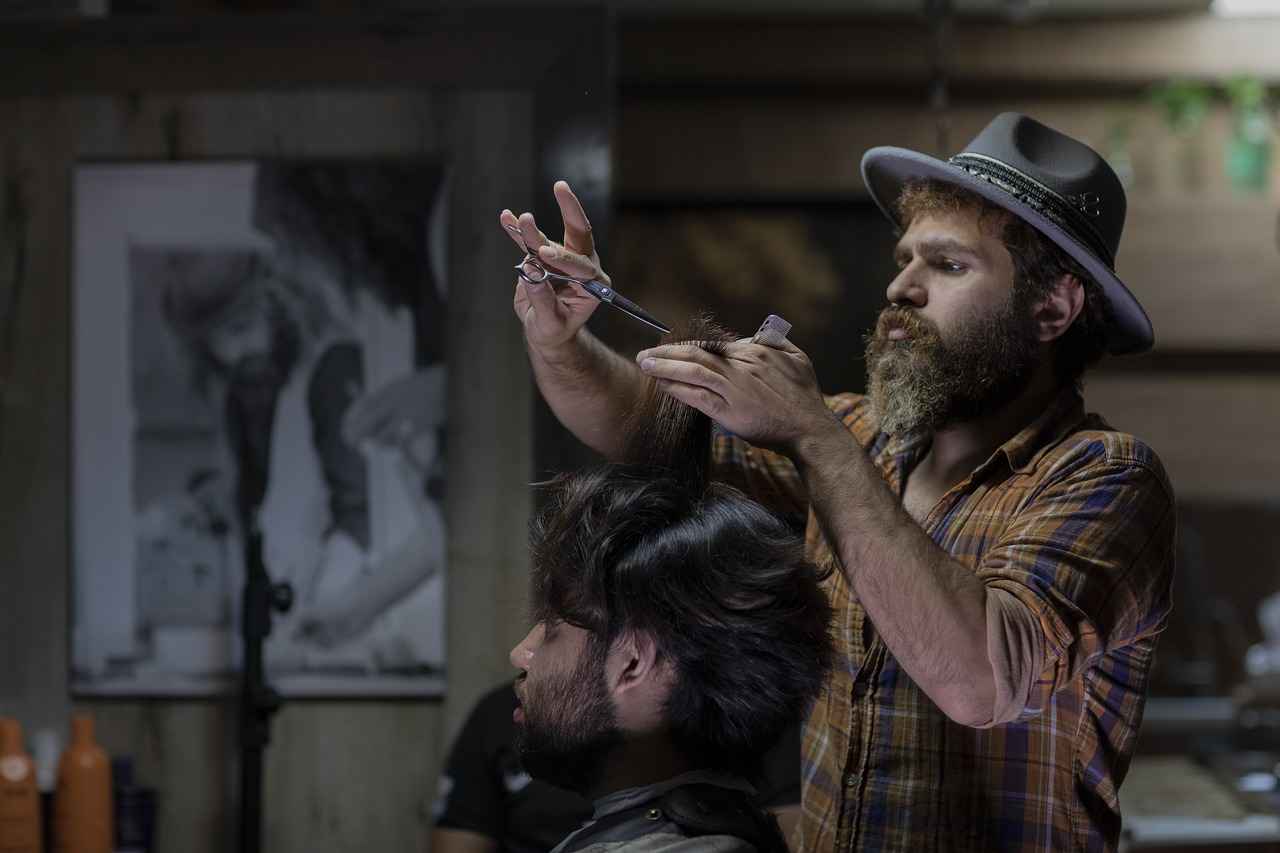This article serves as a comprehensive guide on securing remote part-time employment, offering essential strategies, tips, and insights to enhance your application process and increase your chances of success.
Remote part-time jobs have become increasingly popular, providing individuals with the flexibility to balance work and personal commitments. Understanding the unique nature of these positions is vital for crafting a targeted application that aligns with employer expectations.
Identifying Your Skills and Interests
- Assess your skills and interests to find roles that resonate with your expertise and passion.
- A self-evaluation not only helps in targeting the right positions but also boosts job satisfaction.
Creating a Skills Inventory
A skills inventory is a valuable tool that outlines your qualifications and strengths. This structured approach simplifies the process of matching your skills with job requirements, enabling you to create a compelling resume and cover letter.
Soft Skills vs. Hard Skills
Recognizing the difference between soft skills (like communication and teamwork) and hard skills (such as technical abilities) allows you to present a well-rounded profile to potential employers.
Researching Potential Employers
Thorough research on potential employers is essential. Understanding their culture, values, and work expectations can help you tailor your application and prepare effectively for interviews.
Crafting a Standout Resume
Your resume is often the first impression you make. A well-crafted resume should:
- Highlight your skills and experiences effectively.
- Use a clean, professional format to enhance readability.
- Be customized for each application to show genuine interest.
Writing an Effective Cover Letter
An effective cover letter complements your resume, allowing you to express your personality and enthusiasm for the role. Address your cover letter to the hiring manager whenever possible, and highlight relevant experiences that directly relate to the job.
Preparing for Remote Job Interviews
Preparation is key for remote job interviews. Familiarize yourself with common interview questions and set up a quiet, professional space to create a positive impression.
Following Up After Applications
Following up after submitting your application shows your continued interest. Wait a week or two before reaching out, and craft a concise, polite follow-up message that reiterates your enthusiasm for the position.
Conclusion: Your Path to Remote Part-Time Employment
Securing a remote part-time job requires strategic planning and execution. By following these guidelines, you can enhance your application process and significantly increase your chances of success.
Understanding Remote Part-Time Jobs
In today’s fast-paced world, remote part-time jobs have gained immense popularity due to their flexibility and convenience. These positions allow individuals to balance personal commitments while still earning an income. However, understanding the nature of these jobs is essential for crafting an effective application and aligning your skills with what employers seek.
Remote part-time roles can vary significantly across different industries, from customer service to content creation. Therefore, it is crucial to recognize that each position may have unique requirements and expectations. For instance, a remote customer service representative might need strong communication skills and the ability to handle inquiries efficiently, while a part-time graphic designer would benefit from a robust portfolio showcasing creativity and technical skills.
To enhance your chances of success in applying for these roles, consider the following strategies:
- Research the Role: Understand the specific responsibilities and qualifications needed for the position you are interested in.
- Tailor Your Application: Customize your resume and cover letter to highlight relevant experiences and skills that align with the job description.
- Demonstrate Remote Work Skills: Emphasize your ability to work independently, manage time effectively, and utilize technology to communicate and collaborate.
Moreover, many employers value self-motivation and adaptability in remote employees. Highlighting these traits in your application can set you apart from other candidates. Additionally, showcasing any prior experience in remote work can be a significant advantage.
In conclusion, understanding the intricacies of remote part-time jobs is vital for tailoring your application effectively. By aligning your skills and experiences with employer expectations, you can significantly improve your chances of landing the job you desire.

Identifying Your Skills and Interests
When it comes to applying for remote part-time jobs, one of the most critical steps is . This process of self-evaluation is essential as it enables you to align your job search with roles that not only match your expertise but also ignite your passion. By doing so, you significantly enhance your chances of achieving both job satisfaction and optimal performance in your role.
Before diving into the job market, take a moment to reflect on what you genuinely enjoy doing and where your strengths lie. This could include technical skills, such as proficiency in software applications, or soft skills like communication and teamwork. Creating a skills inventory can be a helpful exercise. This inventory should list both your hard skills (e.g., coding, graphic design) and soft skills (e.g., problem-solving, adaptability). By categorizing your abilities, you can better understand how they align with various job descriptions.
Furthermore, analyzing job postings for required skills is invaluable. Look for common themes in the roles you are interested in, and compare them with your skills inventory. This analysis will allow you to tailor your resume and cover letter effectively, emphasizing the most relevant experiences that showcase your qualifications.
Additionally, consider your interests beyond just job-related skills. Think about what industries excite you and what types of tasks you find fulfilling. This alignment between your interests and job roles can lead to greater job satisfaction and motivation, ultimately enhancing your productivity and engagement at work.
In conclusion, taking the time to assess your skills and interests is not merely a preparatory step; it is a strategic move that can lead to a more fulfilling career path. By identifying what you excel at and what you love, you can target roles that resonate with you, setting the stage for success in your remote part-time job search.

Creating a Skills Inventory
is a crucial step in the job application process, especially when targeting remote part-time positions. A skills inventory serves as a comprehensive list that outlines your qualifications, strengths, and areas of expertise. By clearly identifying and organizing these skills, you can effectively align them with the requirements of potential employers, making your application stand out.
When crafting your skills inventory, it is essential to categorize your skills into two primary types: hard skills and soft skills.
- Hard Skills: These are specific, teachable abilities that can be quantified. Examples include programming languages, data analysis, graphic design, and project management. Highlighting these skills can demonstrate your technical competence to employers.
- Soft Skills: These refer to interpersonal attributes that enable you to interact effectively with others. Skills such as communication, teamwork, adaptability, and problem-solving are highly valued by employers, particularly in remote work environments where collaboration is key.
Once you have compiled your skills, the next step is to align them with job descriptions. Carefully analyze the job postings that interest you and identify keywords and phrases that reflect the skills employers are seeking. Tailor your inventory to emphasize these relevant skills, thereby increasing your chances of catching the hiring manager’s attention.
Moreover, consider creating a visual representation of your skills inventory. This could be in the form of a table or a chart, making it easier for you to visualize and communicate your strengths during interviews:
| Skill Type | Examples |
|---|---|
| Hard Skills | Programming, Data Analysis, Graphic Design |
| Soft Skills | Communication, Teamwork, Adaptability |
In conclusion, a well-structured skills inventory not only aids in crafting a compelling resume and cover letter but also prepares you for interviews. By clearly articulating your qualifications and aligning them with the needs of potential employers, you enhance your chances of securing the remote part-time job you desire.
Soft Skills vs. Hard Skills
In today’s competitive job market, understanding the distinction between soft skills and hard skills is essential for job seekers. This knowledge not only enhances your self-presentation but also aligns your capabilities with employer expectations. Below, we delve into the unique characteristics of both skill types and their significance in creating a well-rounded professional profile.
| Skill Type | Description | Examples |
|---|---|---|
| Soft Skills | Interpersonal skills that enable effective communication and collaboration. | Communication, Teamwork, Adaptability, Problem-solving |
| Hard Skills | Specific technical abilities or knowledge required for a job. | Programming, Data Analysis, Graphic Design, Project Management |
Soft skills are often considered the glue that binds teams together. They encompass abilities such as communication, which is vital for conveying ideas clearly, and teamwork, which fosters collaborative environments. Employers increasingly value these skills, as they contribute to a positive workplace culture and enhance overall productivity.
On the other hand, hard skills are typically acquired through education and training. They are quantifiable and can be measured through tests or certifications. For instance, a software developer must possess programming skills, while a graphic designer should be proficient in design software. These skills are crucial for performing specific job functions effectively.
In conclusion, showcasing a balance of both soft and hard skills in your resume or during interviews can significantly improve your chances of landing a job. By highlighting your technical abilities alongside your interpersonal strengths, you present a comprehensive profile that appeals to potential employers.
Aligning Skills with Job Descriptions
In today’s competitive job market, aligning your skills with job descriptions is crucial for standing out as a candidate. When you take the time to carefully analyze job descriptions, you can tailor your application to highlight the most relevant skills and experiences that resonate with the employer’s needs. This strategic approach not only showcases your qualifications but also demonstrates your genuine interest in the position.
To begin, break down the job description into key components. Look for specific skills, qualifications, and experiences that the employer emphasizes. For instance, if a position requires strong communication skills, consider your past experiences where you successfully communicated ideas or collaborated with teams. This will allow you to present your background in a way that directly addresses the employer’s requirements.
- Identify Keywords: Focus on keywords and phrases that appear frequently in the job description. Incorporating these terms into your resume and cover letter can improve your chances of passing through applicant tracking systems (ATS).
- Showcase Relevant Experiences: Highlight specific projects or roles that align with the skills mentioned in the job description. Use quantifiable achievements to demonstrate your impact.
- Customize Your Application: Tailor your resume and cover letter for each application. A generic application may not capture the employer’s attention as effectively as one that is personalized.
Moreover, consider the company culture and values. Researching the employer can provide insights into what they value most in their employees. This understanding can help you frame your skills in a way that aligns with their mission and goals.
In conclusion, aligning your skills with job descriptions is not just about matching qualifications; it’s about presenting yourself as the ideal candidate for the role. By taking the time to analyze job postings and adjust your application accordingly, you significantly enhance your chances of securing an interview and ultimately landing the job.
Researching Potential Employers
is a crucial step in the job application process, especially when applying for remote part-time positions. A deep understanding of potential employers can significantly enhance your chances of success. Here, we will explore why this research is vital and how to effectively conduct it.
First and foremost, understanding the company culture is essential. Each organization has its own unique values and work environment, which can greatly influence your job satisfaction and performance. By researching a company’s culture, you can determine if it aligns with your personal values and work style.
- Company Values: Look for their mission statement and core values on their website. This information can give you insight into what the company prioritizes.
- Work Expectations: Understanding what is expected of employees in terms of productivity, communication, and collaboration is crucial for tailoring your application.
- Employee Reviews: Websites like Glassdoor and Indeed provide reviews from current and former employees. These reviews can offer a glimpse into the day-to-day realities of working at the company.
Furthermore, being informed about the company’s recent news and developments can provide talking points during interviews. This knowledge demonstrates your genuine interest in the company and can set you apart from other candidates.
When preparing your application, tailor your resume and cover letter to reflect the company’s values and expectations. Highlight experiences and skills that resonate with the organization’s mission. This tailored approach not only showcases your qualifications but also your enthusiasm for the role.
In conclusion, thorough research on potential employers is not just beneficial; it is essential. By understanding their culture, values, and work expectations, you can craft a compelling application and prepare effectively for interviews, ultimately increasing your chances of landing that desired remote part-time job.
Crafting a Standout Resume
Your resume serves as your personal marketing tool, and it is often the first impression you make on potential employers. A well-crafted resume not only highlights your skills and experiences but also effectively communicates your value, significantly increasing your chances of landing an interview.
To create a standout resume, consider the following essential elements:
- Clear Formatting and Structure: Use a professional layout with clear headings and bullet points. This enhances readability and allows employers to quickly scan your qualifications.
- Tailored Content: Customize your resume for each position you apply for. Highlight experiences and skills that are directly relevant to the job description, demonstrating your genuine interest and attention to detail.
- Showcase Achievements: Instead of merely listing job duties, focus on your accomplishments. Use quantifiable metrics where possible to illustrate your impact, such as “increased sales by 20% within six months.”
- Keywords and Phrases: Incorporate industry-specific keywords from the job posting. Many companies use applicant tracking systems (ATS) to filter resumes, so aligning your language with the job description can improve your chances of getting noticed.
- Professional Summary: Start with a strong summary statement that encapsulates your career goals and key qualifications. This should be a brief paragraph that grabs the employer’s attention right away.
In addition to these elements, it’s crucial to ensure that your resume is free from errors. Typos or grammatical mistakes can create a negative impression and suggest a lack of attention to detail. Consider asking a friend or using professional services to review your resume before submission.
In conclusion, a standout resume is not just about listing your experiences; it’s about telling your professional story in a way that resonates with potential employers. By focusing on clarity, customization, and showcasing your achievements, you can significantly enhance your chances of making a lasting impression and securing that all-important interview.

Formatting and Structure
When it comes to applying for remote part-time jobs, the of your application materials can significantly impact your chances of success. A well-organized presentation not only enhances readability but also conveys professionalism. Here are some key strategies to ensure your resume and cover letter stand out:
- Use Clear Headings: Organize your resume with distinct headings for each section, such as “Experience,” “Education,” and “Skills.” This helps hiring managers quickly locate the information they need.
- Incorporate Bullet Points: Instead of lengthy paragraphs, utilize bullet points to list your qualifications and achievements. This format allows for easier scanning and highlights your key strengths effectively.
- Maintain Concise Language: Use clear and straightforward language to describe your experiences. Avoid jargon and unnecessary details; instead, focus on what is most relevant to the job you are applying for.
- Consistent Formatting: Ensure that your font style, size, and spacing are consistent throughout your documents. This uniformity creates a polished look that reflects attention to detail.
- Highlight Important Information: Use bold or italicized text to emphasize critical details, such as job titles or key accomplishments. This draws the reader’s eye to the most important parts of your application.
By implementing these formatting strategies, you can create a professional and engaging application that captures the attention of potential employers. Remember, the goal is to present your qualifications in an organized manner that facilitates easy reading and understanding.
In conclusion, investing time in the formatting and structure of your resume and cover letter is crucial. A clean, professional format not only enhances readability but also increases your chances of making a positive impression on hiring managers.
Customizing Your Resume for Each Application
In today’s competitive job market, customizing your resume for each application is not just a good practice; it is essential. This tailored approach reflects your attention to detail and demonstrates a genuine interest in the specific position you are applying for. Employers are more likely to notice candidates who take the time to align their skills and experiences with the job requirements.
When you tailor your resume, you are essentially creating a narrative that connects your background to the job description. This process involves:
- Analyzing the Job Description: Carefully read the job posting to identify key skills and qualifications that the employer is seeking.
- Highlighting Relevant Experience: Focus on your past experiences that directly relate to the job. This could include specific projects, roles, or achievements that showcase your suitability.
- Using Keywords: Incorporate important keywords from the job description into your resume. This not only helps with applicant tracking systems (ATS) but also shows that you understand the role’s requirements.
Additionally, consider the following tips to further enhance your resume:
- Keep it Concise: Aim for a clear and concise format that makes it easy for hiring managers to quickly identify your qualifications.
- Showcase Soft Skills: In addition to technical skills, highlight relevant soft skills like teamwork, communication, and problem-solving that are often sought after by employers.
- Format Professionally: Use a clean layout with consistent fonts and bullet points to improve readability.
In conclusion, customizing your resume for each application significantly increases your chances of standing out as a candidate. It shows that you are not just applying to every job indiscriminately but are genuinely interested in the position and the company. By taking the time to tailor your resume, you position yourself as a more attractive candidate, ready to contribute effectively to the organization.
Writing an Effective Cover Letter
Writing a cover letter is a crucial step in the job application process, especially when aiming for remote part-time positions. An effective cover letter serves as a powerful complement to your resume, enabling you to showcase your personality and enthusiasm for the role. It also allows you to address specific job requirements that hiring managers are looking for.
To begin with, your cover letter should be tailored to each job application. This means taking the time to understand the job description and the company’s values. Highlight your relevant experiences and skills that align with the position. For instance, if the job requires strong communication skills, share a brief example of how you successfully communicated in a previous role. This not only emphasizes your qualifications but also makes your application more memorable.
Moreover, addressing the hiring manager by name, if possible, adds a personal touch that can set you apart from other candidates. It shows that you’ve done your research and are genuinely interested in the company. Additionally, use a professional tone while still allowing your personality to shine through. This balance helps convey your enthusiasm and makes your cover letter stand out.
Another important aspect is to keep your cover letter concise. Aim for a one-page format, focusing on your most relevant experiences and how they relate to the job. Use bullet points or short paragraphs to enhance readability and keep the reader engaged.
In conclusion, a well-crafted cover letter can significantly enhance your job application. By personalizing it, addressing relevant experiences, and maintaining a professional yet engaging tone, you can effectively communicate your suitability for the role. This approach not only complements your resume but also positions you as a strong candidate in the competitive job market.

Addressing the Hiring Manager
When applying for a job, particularly in a competitive landscape, your cover letter serves as an essential tool to make a memorable impression. One effective strategy is to address your cover letter directly to the hiring manager. This personal touch not only demonstrates your effort but also highlights your genuine interest in the company and the position you are applying for.
By taking the time to find out the name of the hiring manager, you show that you are willing to go the extra mile. This small detail can set your application apart from others that may use generic salutations like “To Whom It May Concern.” A personalized greeting creates an immediate connection and indicates that you have researched the company, which can be a significant advantage in your application process.
Moreover, addressing the hiring manager by name can help establish rapport. It signals to them that you value their role within the organization and are eager to contribute to their team. When you mention their name, it can also make your cover letter feel more conversational and engaging, which may resonate well with the reader.
In addition, a personalized approach allows you to tailor your message more effectively. You can reference specific projects or values that the hiring manager is known for, aligning your skills and experiences with the company’s goals. This targeted approach enhances your chances of making a lasting impression.
In conclusion, whenever possible, take the time to address your cover letter to the hiring manager. This thoughtful gesture reflects your dedication and enthusiasm for the role, making it a crucial step in your job application process.
Highlighting Relevant Experiences
is a crucial aspect of crafting an effective cover letter. When applying for a job, it’s essential to go beyond simply listing your qualifications. Instead, you should use your cover letter as a platform to elaborate on experiences that directly relate to the job you are seeking. This approach not only reinforces your suitability for the position but also makes your application more memorable.
To effectively highlight your relevant experiences, consider the following strategies:
- Use Specific Examples: Instead of vague statements, include specific examples of past achievements or responsibilities that align with the job description. For instance, if the job requires project management skills, discuss a successful project you led, detailing the challenges faced and the outcomes achieved.
- Showcase Transferable Skills: Even if your previous roles differ from the job you are applying for, identify transferable skills that are applicable. Skills like communication, teamwork, and problem-solving are valuable in any position.
- Connect Your Experiences to Company Values: Research the company’s mission and values, and tailor your experiences to reflect how you embody those principles. This connection demonstrates your genuine interest in the company and its culture.
- Quantify Your Achievements: Whenever possible, use numbers and metrics to quantify your achievements. For example, stating that you “increased sales by 20% over six months” provides concrete evidence of your capabilities.
Incorporating these elements into your cover letter not only enhances its effectiveness but also positions you as a strong candidate. Remember, the goal is to create a narrative that showcases your unique qualifications and makes a lasting impression on the hiring manager.
By taking the time to thoughtfully highlight your relevant experiences, you can significantly improve your chances of landing an interview and ultimately securing the job.
Preparing for Remote Job Interviews
In today’s digital age, remote job interviews have become increasingly common. Proper preparation is essential to ensure you make a strong impression and convey your qualifications effectively. Here are some strategies to help you excel in your next remote interview.
- Understand the Technology: Familiarize yourself with the video conferencing tools that will be used during the interview, such as Zoom, Microsoft Teams, or Google Meet. Ensure that your software is up-to-date and that you know how to use its features, such as screen sharing and muting/unmuting.
- Practice Common Interview Questions: Anticipate the questions that may be asked and practice your responses. Common questions include inquiries about your strengths and weaknesses, your experience, and situational questions that assess your problem-solving abilities.
- Create a Distraction-Free Environment: Choose a quiet, well-lit space for your interview. Eliminate any potential distractions, such as pets or background noise, to maintain professionalism throughout the conversation.
- Dress Professionally: Even though the interview is remote, dressing appropriately can help you feel more confident and project a professional image. Consider wearing business attire as you would for an in-person interview.
- Prepare Your Questions: Interviews are a two-way street. Prepare thoughtful questions about the company culture, team dynamics, and expectations for the role. This demonstrates your interest in the position and helps you assess if the company is a good fit for you.
By taking the time to prepare thoroughly, you can approach your remote job interview with confidence and clarity. Remember, the goal is not just to answer questions, but to engage in a meaningful conversation that showcases your skills and potential fit for the role.
Conclusion: In conclusion, remote job interviews can be a rewarding experience when approached with the right mindset and preparation. By understanding the technology, practicing common questions, and creating a professional environment, you increase your chances of making a lasting impression.

Practicing Common Interview Questions
Preparing for an interview can be a daunting task, but one of the most effective ways to enhance your chances of success is by . This preparation not only boosts your confidence but also sharpens your communication skills, allowing you to articulate your thoughts clearly during the actual interview.
When you anticipate the types of questions you might face, you can formulate thoughtful responses that showcase your skills and experiences. Common interview questions often include:
- Tell me about yourself.
- What are your greatest strengths and weaknesses?
- Why do you want to work for this company?
- Describe a challenging situation and how you overcame it.
- Where do you see yourself in five years?
By practicing answers to these questions, you can ensure that you highlight your relevant experiences and align them with the job requirements. This targeted approach not only demonstrates your suitability for the role but also helps you to remain calm and composed during the interview.
Additionally, consider conducting mock interviews with a friend or using online platforms. This practice can provide valuable feedback and help you refine your responses. Focus on maintaining a positive body language and eye contact, as these non-verbal cues significantly impact the interviewer’s perception.
Furthermore, familiarize yourself with the company’s culture and values. Tailoring your responses to reflect their mission can make a lasting impression. For instance, if the company values teamwork, share examples from your past experiences that illustrate your collaborative skills.
In conclusion, investing time in practicing common interview questions can transform your interview experience. Not only will it enhance your confidence, but it will also equip you with the communication skills necessary to effectively convey your qualifications and enthusiasm for the role.
Setting Up Your Interview Space
When preparing for remote job interviews, creating an optimal interview environment is just as important as your qualifications and experience. A well-thought-out space can significantly impact your performance and the impression you leave on interviewers.
Here are some essential tips for setting up your interview space:
- Choose a Quiet Location: Select a room or area in your home that is free from noise and interruptions. Inform family members or roommates of your interview time to minimize distractions.
- Ensure Good Lighting: Natural light is ideal, but if that’s not possible, use bright, soft lighting that illuminates your face without causing harsh shadows. This helps you appear more approachable and engaged.
- Declutter Your Background: A tidy background reflects professionalism. Remove any personal items or clutter that could divert attention from you. Consider using a plain wall or a simple bookshelf as a backdrop.
- Test Your Technology: Ensure that your computer, camera, and microphone are working properly before the interview. Conduct a test call with a friend to check audio and video quality.
- Dress Professionally: Even though you are at home, dress as you would for an in-person interview. This not only boosts your confidence but also helps you get into a professional mindset.
By following these guidelines, you can create a positive and professional atmosphere that enhances your chances of making a great impression during your remote interview.
Following Up After Applications
Following up after submitting your application is an essential strategy that can significantly enhance your chances of landing a remote part-time job. This proactive approach not only demonstrates your enthusiasm for the position but also helps you stand out in a competitive job market.
When you take the time to follow up, you convey a message of seriousness and commitment to the potential employer. It shows that you are genuinely interested in the role and the company, which can resonate positively with hiring managers. A well-timed follow-up can also serve as a gentle reminder of your application, prompting the employer to revisit your credentials.
- Why is Following Up Important?
- It reinforces your interest in the position.
- It can highlight your proactive nature.
- It may lead to a timely response from the employer.
However, timing your follow-up is crucial. A good rule of thumb is to wait about one to two weeks after submitting your application before reaching out. This allows the employer sufficient time to review applications while also showing that you are eager to hear back.
Crafting an Effective Follow-Up Message is another key aspect to consider. Your message should be concise, polite, and professional. Here’s a simple structure you can follow:
Subject: Follow-Up on [Job Title] ApplicationDear [Hiring Manager's Name],I hope this message finds you well. I wanted to follow up on my application for the [Job Title] position submitted on [Date]. I am very enthusiastic about the opportunity to contribute to [Company Name] and would appreciate any updates regarding my application status.Thank you for your time and consideration.Best regards,[Your Name]
In conclusion, following up after your application is not just a courtesy; it’s a powerful tool in your job search arsenal. By demonstrating your interest and initiative, you can leave a lasting impression that may just set you apart from other candidates.

Timing Your Follow-Up
When it comes to applying for jobs, particularly remote part-time positions, the timing of your follow-up can significantly influence the outcome of your application. Timing is crucial; therefore, it is advisable to wait a week or two after submitting your application before reaching out to the employer. This approach not only demonstrates your patience but also showcases your enthusiasm for the position.
Following up too soon can give the impression of impatience or desperation, which may not resonate well with potential employers. On the other hand, waiting a week or two allows the hiring team adequate time to review applications and conduct initial screenings. This period can also serve as a buffer for you to reflect on your application and prepare any follow-up questions or points that might strengthen your candidacy.
In your follow-up message, it is essential to strike the right tone. Here are some tips to consider:
- Be Concise: Keep your message brief and to the point. A couple of paragraphs should suffice.
- Express Gratitude: Thank the employer for considering your application, which shows professionalism.
- Reiterate Your Interest: Use this opportunity to highlight your enthusiasm for the role and the company.
- Ask About Next Steps: Politely inquire about the status of your application and any potential next steps in the hiring process.
By following these guidelines, you can ensure that your follow-up is both respectful and effective. Remember, the goal is to keep the lines of communication open while reinforcing your interest in the role.
In conclusion, mastering the timing of your follow-up can enhance your chances of success in the job application process. By demonstrating both patience and enthusiasm, you position yourself as a thoughtful and engaged candidate.
Crafting a Polite Follow-Up Message
When you apply for a job, the follow-up message is a crucial element that can significantly impact your chances of securing the position. A well-crafted follow-up message should not only be concise but also polite, reiterating your interest in the role and expressing gratitude to the employer for considering your application.
First and foremost, it is important to timing your follow-up correctly. Ideally, you should wait about one to two weeks after submitting your application before reaching out. This gives the employer adequate time to review applications while also showing your enthusiasm for the position.
In your follow-up message, begin with a polite greeting and address the hiring manager by name, if possible. This personal touch demonstrates your attention to detail and can make a positive impression. For example:
Dear [Hiring Manager's Name],
Next, reiterate your interest in the position. You might say something like:
I wanted to follow up regarding my application for the [Job Title] position. I remain very interested in the opportunity to join [Company Name] and contribute to your team.
After expressing your interest, it is essential to thank the employer for their time and consideration. This not only shows professionalism but also reinforces your positive attitude:
Thank you for considering my application. I appreciate the time and effort involved in the hiring process.
Finally, close your message with a polite sign-off, inviting further communication:
I look forward to the possibility of discussing my application further. Thank you once again for your consideration.Best regards,[Your Name]
In conclusion, a thoughtful follow-up message can set you apart from other candidates. By being concise, polite, and expressing genuine interest, you enhance your chances of making a lasting impression on potential employers.
Conclusion: Your Path to Remote Part-Time Employment
Securing a remote part-time job is an endeavor that requires careful planning and execution. With the rise of remote work, many individuals are seeking flexible job opportunities that fit their lifestyles. To increase your chances of success, it is essential to follow a strategic approach in your application process. Below are some key guidelines to consider.
- Understand the Remote Job Landscape: Familiarize yourself with the types of remote part-time jobs available in your field. This knowledge will help you identify roles that align with your skills and interests.
- Assess Your Skills: Conduct a self-assessment to determine your strengths and weaknesses. This will enable you to target positions where you can excel and enjoy your work.
- Create a Tailored Resume: Your resume should highlight relevant experiences and skills. Customize it for each application to reflect the specific requirements of the job.
- Craft a Compelling Cover Letter: Use your cover letter to express your enthusiasm for the position and to elaborate on how your skills make you a suitable candidate.
- Prepare for Interviews: Familiarize yourself with common interview questions and practice your responses. Setting up a professional interview space can also make a positive impression.
- Follow Up: After submitting your application, consider sending a follow-up message to express your continued interest in the position.
By implementing these strategies, you can significantly improve your application process for remote part-time jobs. Remember, persistence and adaptability are key in this competitive job market. Stay positive and proactive in your search, and you will be well on your way to securing a fulfilling remote position.
Conclusion: Securing a remote part-time job requires strategic planning and execution. By following these guidelines, you can enhance your application process and increase your chances of success.
How to Successfully Apply for Remote Part-Time Jobs
This article provides a comprehensive guide on securing remote part-time employment, covering essential strategies, tips, and insights to enhance your application process and increase your chances of success.
Understanding Remote Part-Time Jobs
Remote part-time jobs offer flexibility and convenience. Understanding the nature of these positions is crucial for tailoring your application and aligning your skills with employer expectations.
Identifying Your Skills and Interests
Before applying, assess your skills and interests. This self-evaluation helps you target roles that match your expertise and passion, increasing job satisfaction and performance.
- Creating a Skills Inventory: A skills inventory outlines your qualifications and strengths, making it easier to match them with job requirements.
- Soft Skills vs. Hard Skills: Understanding the difference between soft skills (communication, teamwork) and hard skills (technical abilities) helps you present a well-rounded profile.
- Aligning Skills with Job Descriptions: Carefully analyzing job descriptions allows you to tailor your application, emphasizing relevant skills and experiences.
Researching Potential Employers
Thorough research on potential employers is essential. Understanding their culture, values, and work expectations can help you tailor your application and prepare for interviews.
Crafting a Standout Resume
Your resume is often the first impression you make. A well-crafted resume highlights your skills and experiences effectively, increasing your chances of landing an interview.
- Formatting and Structure: A clean, professional format enhances readability. Use clear headings, bullet points, and concise language.
- Customizing Your Resume for Each Application: Tailoring your resume for each job application shows attention to detail and genuine interest.
Writing an Effective Cover Letter
An effective cover letter complements your resume, allowing you to express your personality and enthusiasm for the role.
- Addressing the Hiring Manager: Address your cover letter to the hiring manager whenever possible.
- Highlighting Relevant Experiences: Use your cover letter to elaborate on experiences that directly relate to the job.
Preparing for Remote Job Interviews
Preparation is key for remote job interviews. Familiarizing yourself with common interview questions and the technology used can help you present yourself confidently.
- Practicing Common Interview Questions: Anticipating and practicing answers can enhance your confidence.
- Setting Up Your Interview Space: A quiet, professional space is essential for remote interviews.
Following Up After Applications
Following up after submitting your application is a proactive step that can set you apart.
- Timing Your Follow-Up: Wait a week or two after submitting your application before following up.
- Crafting a Polite Follow-Up Message: A well-crafted follow-up message should be concise and polite.
Conclusion: Your Path to Remote Part-Time Employment
Securing a remote part-time job requires strategic planning and execution. By following these guidelines, you can enhance your application process and increase your chances of success.

Frequently Asked Questions
- What are remote part-time jobs?
Remote part-time jobs are positions that allow you to work from home or any location, offering flexibility in hours and responsibilities. These jobs can range from customer service to freelance writing, catering to various skills and interests.
- How can I identify my skills for remote job applications?
Start by assessing your previous work experiences and interests. Create a skills inventory that lists both hard skills (like coding or graphic design) and soft skills (like communication and teamwork) to help you target jobs that align with your strengths.
- Why is customizing my resume important?
Customizing your resume for each application shows potential employers that you’re genuinely interested in the position. It allows you to highlight the most relevant experiences and skills, making your application stand out in a competitive job market.
- What should I include in my cover letter?
Your cover letter should express your enthusiasm for the role and elaborate on experiences that directly relate to the job. Address it to the hiring manager whenever possible and keep it concise yet engaging.
- How do I prepare for a remote job interview?
Preparation involves familiarizing yourself with common interview questions and ensuring your technology works smoothly. Set up a quiet, well-lit space free from distractions to create a professional atmosphere during your interview.
- Is it necessary to follow up after submitting an application?
Yes! Following up shows your continued interest in the position and can prompt a response from the employer. Wait about a week or two after submitting your application before reaching out with a polite follow-up message.
